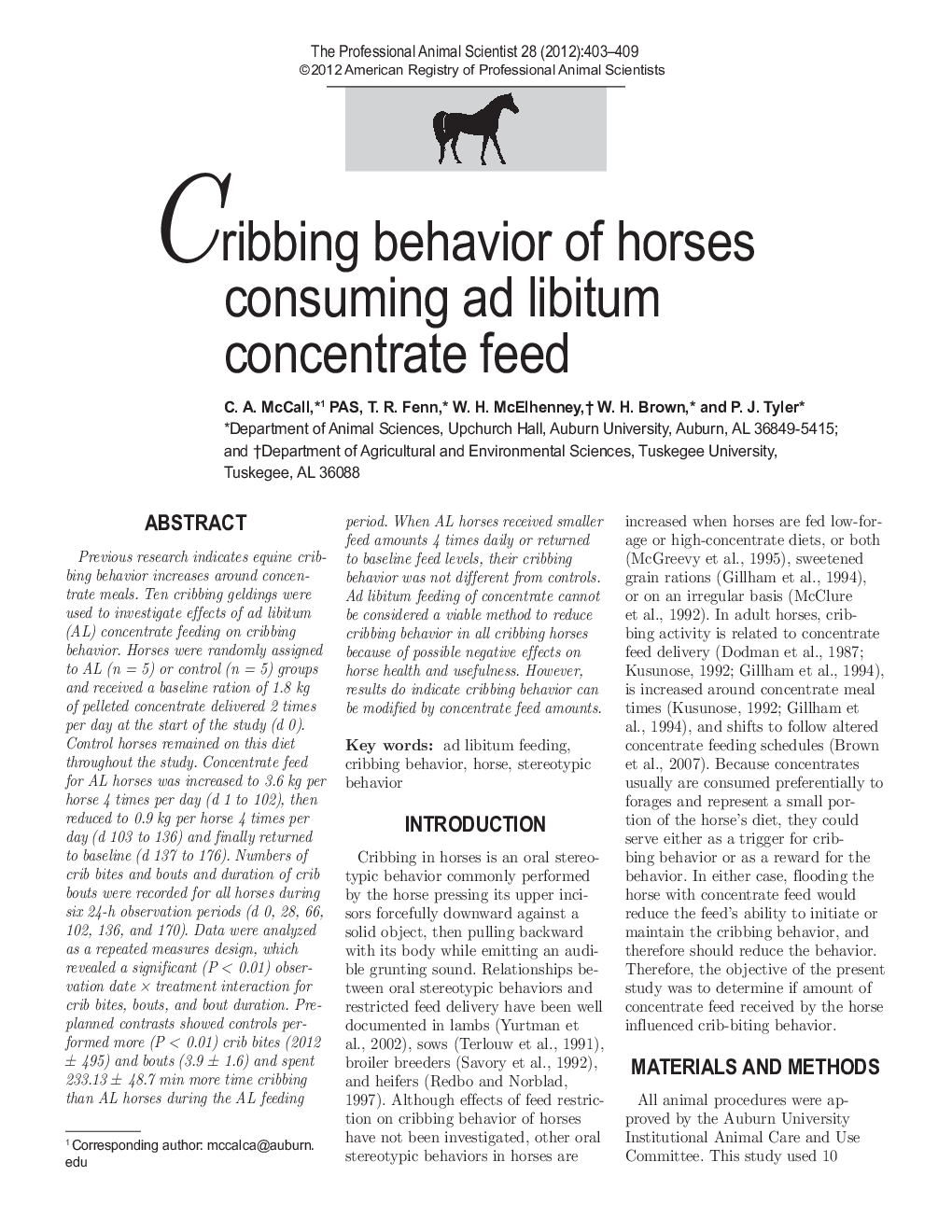| Article ID | Journal | Published Year | Pages | File Type |
|---|---|---|---|---|
| 2454123 | The Professional Animal Scientist | 2012 | 7 Pages |
Abstract
Previous research indicates equine cribbing behavior increases around concentrate meals. Ten cribbing geldings were used to investigate effects of ad libitum (AL) concentrate feeding on cribbing behavior. Horses were randomly assigned to AL (n = 5) or control (n = 5) groups and received a baseline ration of 1.8 kg of pelleted concentrate delivered 2 times per day at the start of the study (d 0). Control horses remained on this diet throughout the study. Concentrate feed for AL horses was increased to 3.6 kg per horse 4 times per day (d 1 to 102), then reduced to 0.9 kg per horse 4 times per day (d 103 to 136) and finally returned to baseline (d 137 to 176). Numbers of crib bites and bouts and duration of crib bouts were recorded for all horses during six 24-h observation periods (d 0, 28, 66, 102, 136, and 170). Data were analyzed as a repeated measures design, which revealed a significant (P < 0.01) observation date à treatment interaction for crib bites, bouts, and bout duration. Preplanned contrasts showed controls performed more (P < 0.01) crib bites (2012 ± 495) and bouts (3.9 ± 1.6) and spent 233.13 ± 48.7 min more time cribbing than AL horses during the AL feeding period. When AL horses received smaller feed amounts 4 times daily or returned to baseline feed levels, their cribbing behavior was not different from controls. Ad libitum feeding of concentrate cannot be considered a viable method to reduce cribbing behavior in all cribbing horses because of possible negative effects on horse health and usefulness. However, results do indicate cribbing behavior can be modified by concentrate feed amounts.
Related Topics
Life Sciences
Agricultural and Biological Sciences
Animal Science and Zoology
Authors
C.A. PAS, T.R. Fenn, W.H. McElhenney, W.H. Brown, P.J. Tyler,
